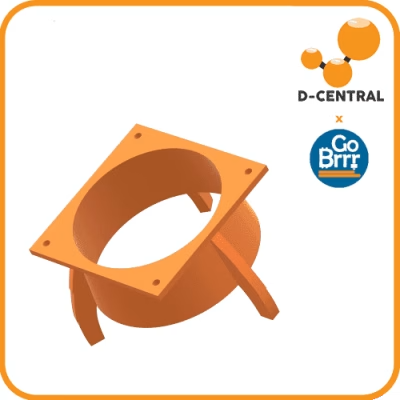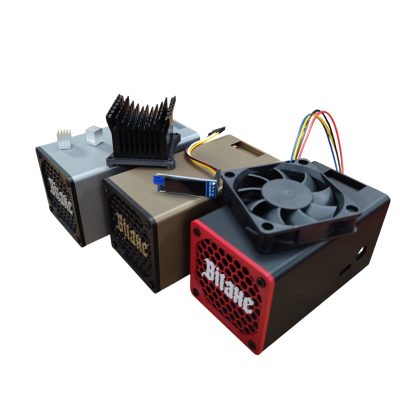In the rapidly evolving world of digital currencies, cryptocurrency mining has emerged as a cornerstone activity, underpinning the very fabric of the blockchain technology that drives cryptocurrencies like Bitcoin, Ethereum, and countless others. This process, which involves validating transactions and adding them to the blockchain ledger, is not just a critical aspect of maintaining the integrity and security of digital currencies but also a potentially lucrative endeavor for participants. However, the profitability and sustainability of cryptocurrency mining hinge significantly on the efficiency of the mining operations, which is where the concept of mining hosting services comes into play.
Mining hosting services, often referred to as colocation services, offer individuals and businesses a specialized environment to house their mining hardware. Unlike traditional home mining setups, these services provide access to industrial-grade electrical infrastructure, advanced cooling systems, and enhanced security measures, all of which are essential for optimal mining performance. The rationale behind using a hosting service is straightforward: by leveraging the economies of scale and the expertise of professionals, miners can significantly reduce their operational costs, improve hardware efficiency, and, consequently, increase their mining profitability.
Selecting the right hosting service is paramount in the world of cryptocurrency mining. The choice of a hosting provider can dramatically affect not only the immediate returns on mining activities but also the long-term sustainability of the mining operation. Factors such as energy costs, location, infrastructure quality, and the availability of technical support play critical roles in determining the overall success of mining endeavors. Therefore, understanding the nuances of what makes a hosting service ideal is crucial for anyone looking to venture into or optimize their cryptocurrency mining operations. This guide aims to unveil the secrets to selecting the ideal cryptocurrency mining hosting service, ensuring that your mining journey is both efficient and profitable.
Understanding Cryptocurrency Mining Hosting
Cryptocurrency mining hosting, often simply referred to as mining hosting, is a service that allows individual miners or mining companies to place their mining hardware in a dedicated facility specifically designed to accommodate the unique requirements of cryptocurrency mining operations. These facilities, known as mining farms or data centers, are equipped with the necessary infrastructure to ensure optimal performance of the mining hardware, including advanced cooling systems, industrial-grade power supplies, and robust security measures.
Definition of Cryptocurrency Mining Hosting
Cryptocurrency mining hosting is a specialized service that provides the physical space, power, and cooling necessary to run cryptocurrency mining hardware efficiently. Unlike personal or home mining setups, where miners are responsible for managing their own equipment, hosting services take on the burden of maintaining the optimal environment for the hardware to operate. This includes managing the extensive electricity demands of mining equipment, ensuring adequate cooling to prevent overheating, and securing the equipment against theft or damage.
The Role of Hosting Services in the Mining Ecosystem
Mining hosting services play a crucial role in the broader cryptocurrency mining ecosystem by democratizing access to the mining process. They enable individuals and small-scale miners to participate in mining activities without the need for significant upfront investments in infrastructure or the technical expertise required to maintain a mining operation. By pooling resources in a shared facility, hosting services can offer economies of scale, resulting in lower operational costs for their clients. Furthermore, these services contribute to the decentralization of mining activities by distributing the mining power across different geographic locations and by making mining accessible to a wider audience.
Benefits of Using a Mining Hosting Service Versus Self-Hosting
Choosing a mining hosting service over self-hosting presents several advantages:
- Reduced Operational Costs: Hosting services can offer lower electricity rates due to their industrial-scale operations and access to cheaper power sources. This can significantly reduce one of the most substantial costs associated with mining.
- Advanced Cooling Systems: Mining hardware generates a considerable amount of heat, and inadequate cooling can lead to reduced performance or hardware failure. Hosting facilities are equipped with professional cooling solutions that can maintain optimal operating temperatures.
- Increased Uptime: Professional hosting services are managed by teams of experts who ensure that the mining hardware is running efficiently around the clock. This maximizes uptime and, consequently, the potential for earning mining rewards.
- Enhanced Security: Security is a paramount concern for miners, as the hardware represents a significant investment. Mining hosting services provide physical security measures to protect against theft, as well as cybersecurity measures to safeguard digital assets.
- Technical Support: Hosting services often include technical support, relieving miners of the burden of troubleshooting hardware issues. This support ensures that any problems are quickly addressed, minimizing downtime.
In summary, cryptocurrency mining hosting offers a compelling solution for miners seeking to optimize their operations. By leveraging the specialized infrastructure and expertise of hosting services, miners can enhance the efficiency, profitability, and security of their mining activities, all while contributing to the growth and decentralization of the cryptocurrency ecosystem.
Key Factors to Consider When Choosing a Mining Hosting Service
Selecting the right cryptocurrency mining hosting service is a critical decision that can significantly influence the efficiency, profitability, and sustainability of your mining operations. Here are the key factors to consider:
Location and Climate
- Geographic Location Impact: The geographic location of a hosting service directly affects mining efficiency. Proximity to cheap energy sources, the political stability of the region, and accessibility for maintenance and upgrades are crucial considerations. A strategically located facility can reduce operational costs and enhance the overall efficiency of mining operations.
- Climate Considerations: Climate plays a pivotal role in determining cooling requirements and, consequently, operational costs. Hosting services situated in cooler climates can leverage natural ambient air to cool mining hardware, significantly reducing the need for artificial cooling solutions and lowering energy consumption.
Infrastructure Quality
- Advanced Infrastructure Significance: The backbone of any reliable mining hosting service is its infrastructure. Advanced infrastructure ensures uninterrupted power supply, efficient cooling systems, and adequate security measures. High-quality infrastructure contributes to higher uptime and longer hardware lifespans, directly impacting mining profitability.
- Features of High-Quality Infrastructure: Look for hosting services that offer state-of-the-art cooling systems, redundant power supplies, and scalable rack space. Additionally, a well-designed network infrastructure with high-speed internet connectivity and low latency can improve mining efficiency.
Energy Costs and Sources
- Energy Costs Analysis: Energy consumption accounts for a significant portion of mining expenses. Therefore, understanding the energy costs associated with a hosting service is essential. Lower energy costs translate to higher net profits from mining activities.
- Renewable Energy Benefits: Hosting services that utilize renewable energy sources not only offer a sustainable mining solution but can also provide more stable and potentially lower energy costs over time. Utilizing green energy can also enhance the corporate social responsibility profile of your mining operation.
Security Measures
- Physical and Cybersecurity Measures: The security of your mining hardware and digital assets cannot be overstated. A reputable hosting service should have comprehensive physical security measures in place, including surveillance cameras, secure access controls, and on-site security personnel. Equally important are cybersecurity measures to protect against digital threats, including firewalls, intrusion detection systems, and regular security audits.
- Asset Protection Importance: Robust security measures ensure the protection of your significant investment in mining hardware and the cryptocurrencies you mine. Security breaches can lead to substantial financial losses and damage to your operation’s reputation.
Compliance and Legal Considerations
- Local Regulations and Compliance: The regulatory environment of the location where the hosting service operates can have profound implications on your mining activities. It’s crucial to choose a hosting service that adheres to local laws and regulations, including those related to cryptocurrency mining, data protection, and energy consumption.
- Legal Framework Impact: Understanding the legal frameworks that govern cryptocurrency mining in the hosting service’s location can help mitigate legal risks. This includes compliance with tax laws, anti-money laundering (AML) regulations, and know your customer (KYC) policies. A hosting service that navigates these legal complexities can provide a stable and long-term home for your mining operations.
In conclusion, carefully evaluating these key factors can guide you in selecting a cryptocurrency mining hosting service that aligns with your operational goals, risk tolerance, and profitability objectives. A well-chosen hosting service not only enhances the efficiency and sustainability of your mining activities but also contributes to the broader success of your cryptocurrency mining venture.
Evaluating Hosting Services: Beyond the Basics
When delving into the realm of cryptocurrency mining hosting services, understanding the foundational aspects is crucial, but to truly optimize your mining operations, you must consider additional, more nuanced factors. These elements can significantly impact the long-term success and sustainability of your mining activities.
Uptime Guarantees
- Significance of High Uptime: In the world of cryptocurrency mining, time is directly correlated with profitability. High uptime guarantees are essential as they ensure that your mining hardware is continuously operating and solving cryptographic puzzles, thereby maximizing your potential earnings. Even minimal downtime can result in significant lost opportunities, especially in a competitive mining environment.
- Ensuring Continuous Operation: Reputable hosting services implement several strategies to guarantee high uptime. This includes redundant power supplies, backup generators, and failover internet connections. Additionally, proactive monitoring and immediate response to hardware or software issues are crucial practices to minimize downtime and maintain continuous mining operations.
Cooling Solutions
- Advanced Cooling Technologies: Effective cooling is vital for maintaining optimal hardware performance and efficiency. Advanced cooling technologies, such as liquid cooling systems, custom-designed airflow management, and environmentally controlled data centers, can significantly enhance the cooling efficiency of mining operations.
- Role of Cooling: Proper cooling extends the lifespan of mining hardware by preventing overheating, which can cause hardware degradation or failure. Efficient cooling solutions also reduce the need for frequent hardware replacements, thereby lowering operational costs. Moreover, optimal cooling contributes to energy efficiency, further reducing the overall expenses of mining operations.
Customization and Scalability
- Customization Abilities: Each mining operation has unique needs based on its scale, chosen cryptocurrencies, and strategic goals. The ability to customize hosting solutions — from individual rack configurations to specific power and cooling requirements — allows miners to optimize their operations according to their specific needs. Customization can lead to improved hardware performance and, consequently, higher mining yields.
- Scalability Options: As mining operations grow, their infrastructure needs evolve. Hosting services that offer scalability allow miners to expand their operations seamlessly without the need for significant downtime or reconfiguration. This includes the ability to add more hardware, access additional power and cooling resources, and scale up network capacity as needed.
Support and Maintenance
- Importance of Professional Support: The complexity of mining hardware and the dynamic nature of the cryptocurrency market necessitate professional support and maintenance services. Access to knowledgeable and responsive support personnel can significantly impact the efficiency and uptime of mining operations.
- Enhancing Mining Efficiency: Quality support services include regular maintenance checks, timely hardware repairs, and firmware updates, all of which are crucial for maintaining optimal mining efficiency. Additionally, hosting services that offer expert advice on hardware optimization and troubleshooting can help miners navigate challenges and make informed decisions to enhance their mining performance.
In summary, when evaluating cryptocurrency mining hosting services, it’s essential to look beyond the basic offerings and consider factors such as uptime guarantees, advanced cooling solutions, customization and scalability options, and the quality of support and maintenance services. These elements are pivotal in ensuring that your mining operation is not only profitable but also sustainable and adaptable to the rapidly changing landscape of cryptocurrency mining.
Cost Analysis and Contract Terms
Navigating the financial aspects of cryptocurrency mining hosting services is crucial for ensuring that your mining operation remains profitable and sustainable. A thorough cost analysis and a clear understanding of contract terms are essential steps in selecting a hosting service that aligns with your financial goals and operational needs.
Understanding the Pricing Models of Hosting Services
- Fixed vs. Variable Pricing: Hosting services typically offer two main pricing models: fixed and variable. Fixed pricing provides a stable monthly fee based on the rack space and power allocation your mining hardware requires. Variable pricing, on the other hand, may fluctuate based on actual power consumption and possibly other factors such as cooling needs. Understanding these models will help you predict monthly costs and choose a model that suits your budgeting preferences.
- Inclusive vs. Exclusive Pricing: Some hosting services offer inclusive pricing, covering all necessary services such as power, cooling, security, and maintenance within a single fee. Others may charge exclusively, itemizing each service separately. Inclusive pricing simplifies budgeting but may include services you don’t need, whereas exclusive pricing offers more flexibility but requires careful analysis to avoid unexpected costs.
Evaluating Contract Terms, Hidden Fees, and Flexibility
- Contract Length: Pay attention to the duration of the contract. Longer contracts might offer lower rates but reduce flexibility, while shorter contracts may be more expensive but allow for adjustments based on market conditions or your operational strategy.
- Hidden Fees: Scrutinize the contract for any hidden fees, which can significantly affect your bottom line. These might include setup fees, maintenance fees, or penalties for exceeding power usage limits. Ask for a comprehensive breakdown of all potential charges before signing.
- Flexibility and Scalability: Evaluate the contract’s terms regarding scalability and flexibility. Your mining operation may grow or need adjustments, and the ability to scale up or down without excessive penalties is crucial. Look for clauses that allow for hardware upgrades, changes in power consumption, or even early termination under specific conditions.
- Service Level Agreements (SLAs): SLAs are critical components of hosting contracts, outlining the expected performance standards, such as uptime guarantees and response times for support requests. Ensure the SLAs align with your expectations and requirements for operational efficiency.
- Renewal Terms and Price Adjustments: Be aware of the renewal terms and conditions for price adjustments. Some contracts may include clauses that allow the hosting service to increase prices after a certain period or upon renewal. Understanding these terms can help you anticipate future costs and negotiate more favorable terms when possible.
In conclusion, a detailed cost analysis and careful evaluation of contract terms are indispensable steps in choosing a cryptocurrency mining hosting service. By thoroughly understanding the pricing models, scrutinizing the contract for hidden fees, and ensuring flexibility and scalability, you can select a hosting service that not only meets your operational needs but also supports your financial objectives, ensuring the long-term profitability and sustainability of your mining operation.
Choosing the Right Hosting Service: A Step-by-Step Guide
Selecting the ideal cryptocurrency mining hosting service is a pivotal decision that can significantly impact the success and profitability of your mining operation. Here’s a comprehensive step-by-step guide, complete with a checklist for evaluating hosting services and tips for negotiating contracts to secure the best deals.
Step 1: Define Your Mining Operation Needs
- Assess Hardware Requirements: Determine the type and quantity of mining hardware you plan to deploy.
- Calculate Power Needs: Estimate the total power consumption of your mining setup.
- Consider Geographic Preferences: Decide on preferred locations based on climate, legal environment, and proximity to energy sources.
Step 2: Research and Shortlist Hosting Services
- Gather a List of Providers: Use online forums, industry publications, and recommendations to compile a list of potential hosting services.
- Check Reputation and Reviews: Look for customer feedback, reviews, and testimonials about the services’ reliability, uptime, and customer support.
Step 3: Evaluate Hosting Services Using a Comprehensive Checklist
- Infrastructure Quality: Assess the quality of the data center infrastructure, including power supply, cooling systems, and security measures.
- Energy Costs and Sources: Inquire about energy costs, the availability of renewable energy sources, and the overall energy efficiency of the facility.
- Location and Climate: Consider the hosting service’s location and how local climate conditions will affect cooling requirements and costs.
- Security Measures: Evaluate both physical and cybersecurity measures in place to protect your hardware and digital assets.
- Compliance and Legal: Ensure the hosting service complies with local regulations and has measures in place to handle legal compliance for your mining operation.
- Uptime Guarantees and SLAs: Look for service level agreements that guarantee high uptime.
- Customization and Scalability: Check if the service offers customizable and scalable solutions to meet your specific needs.
- Support and Maintenance: Assess the availability and quality of customer support and technical maintenance services.
- Pricing Model and Hidden Fees: Understand the pricing structure, including any potential hidden fees or additional costs.
- Contract Flexibility: Review the terms for flexibility, scalability, and conditions for contract termination or renewal.
Step 4: Contact Hosting Services and Request Proposals
- Prepare an RFP: Create a Request for Proposal (RFP) document detailing your requirements and send it to the shortlisted hosting services.
- Gather Proposals: Collect and review proposals from each service, paying close attention to how well they meet your criteria.
Step 5: Negotiate Contracts and Secure the Best Deals
- Prioritize Key Terms: Identify the most important terms for your operation, such as pricing, uptime guarantees, and flexibility.
- Negotiate Pricing: Don’t accept the first offer. Discuss pricing models and seek discounts for longer commitments or larger deployments.
- Clarify SLAs and Penalties: Ensure that service level agreements are clear and include penalties for failing to meet guaranteed uptime or support response times.
- Discuss Scalability Options: Negotiate terms that allow for easy scaling of your operation, including adding or removing hardware and adjusting power usage.
- Review Contract Termination Conditions: Understand the conditions under which the contract can be terminated, including any associated penalties or fees.
Step 6: Make an Informed Decision
- Compare Proposals: Use a comparative analysis to weigh the pros and cons of each proposal against your checklist criteria.
- Consult with Legal and Financial Advisors: Before finalizing your decision, consult with legal and financial advisors to review contract terms and implications.
- Choose the Best Fit: Select the hosting service that best aligns with your operational needs, financial considerations, and long-term mining goals.
Choosing the right cryptocurrency mining hosting service requires thorough research, careful evaluation, and strategic negotiation. By following this step-by-step guide and utilizing the comprehensive checklist, you can make an informed decision that enhances the profitability and sustainability of your mining operation. Remember, the goal is to secure a hosting service that not only meets your current needs but also supports the growth and evolution of your mining activities in the future.
Conclusion
Navigating the complex landscape of cryptocurrency mining hosting services is a critical endeavor for anyone looking to optimize their mining operations. Throughout this guide, we’ve explored the multifaceted aspects of selecting the ideal hosting service, emphasizing the importance of various factors that contribute to the efficiency, profitability, and sustainability of mining activities.
We delved into the significance of location and climate, highlighting how these elements impact cooling requirements and overall operational costs. The quality of infrastructure emerged as a pivotal consideration, underscoring the necessity for advanced cooling systems, reliable power supplies, and robust security measures to safeguard your investment. The analysis of energy costs and sources further revealed the economic and environmental benefits of opting for hosting services that utilize renewable energy sources.
Security measures, both physical and cyber, were identified as crucial for protecting valuable mining hardware and digital assets. Additionally, the discussion on compliance and legal considerations illuminated the need for awareness and adherence to local regulations and legal frameworks, ensuring your mining operation remains on the right side of the law.
The evaluation of hosting services extended beyond the basics to include uptime guarantees, cooling solutions, customization and scalability options, and the indispensable role of support and maintenance services. A comprehensive checklist was provided to aid in the evaluation process, coupled with strategic tips for negotiating contracts to secure the best possible deals.
In conclusion, the journey to selecting the right cryptocurrency mining hosting service is intricate and demands careful consideration of numerous factors. It’s imperative to conduct thorough research and assess each hosting service against the outlined criteria to ensure it aligns with your specific mining goals and values. Remember, the choice of hosting service can significantly influence the success of your mining operation. Therefore, take the time to make an informed decision that will foster the growth and profitability of your mining endeavors.
We invite you to embark on this crucial research journey, armed with the insights and knowledge shared in this guide. Choose a hosting service that not only meets your immediate needs but also supports your long-term vision for successful cryptocurrency mining. Your diligence and strategic selection will pave the way for a prosperous and sustainable mining operation.
FAQ
What is cryptocurrency mining hosting?
Cryptocurrency mining hosting is a specialized service that provides the physical space, power, and cooling necessary to run cryptocurrency mining hardware efficiently. It allows miners to place their equipment in facilities designed for optimal performance.
Why use a mining hosting service instead of self-hosting?
Using a mining hosting service reduces operational costs, provides advanced cooling systems, increases uptime, enhances security, and includes technical support. This optimizes mining performance and profitability.
What factors should be considered when choosing a mining hosting service?
Key factors include the service’s location and climate, quality of infrastructure, energy costs and sources, security measures, compliance and legal considerations, uptime guarantees, cooling solutions, customization and scalability options, and support and maintenance services.
How does location and climate affect mining hosting?
The geographic location influences energy costs, legal regulations, and accessibility. The climate impacts cooling requirements and operational costs, with cooler climates potentially reducing the need for artificial cooling.
Why are energy costs and sources important in mining hosting?
Energy consumption is a significant part of mining expenses. Lower energy costs improve net profit, and renewable energy sources offer sustainability and potentially lower costs over time.
What security measures are crucial for mining hosting services?
Important security measures include both physical and cybersecurity protections, such as surveillance, secure access controls, firewalls, and intrusion detection systems, to safeguard hardware and digital assets.
How do compliance and legal considerations influence mining hosting?
The regulatory environment affects mining activities. It’s vital to choose a hosting service that complies with legal requirements related to cryptocurrency mining, data protection, and energy consumption to ensure stability and legality.
Why is understanding the pricing models and contract terms of hosting services important?
Understanding pricing models (fixed vs. variable, inclusive vs. exclusive) and contract terms like length, hidden fees, and scalability options helps prevent unexpected costs and ensures flexibility. It assists in aligning the service with financial objectives.
What steps can be taken to choose the right mining hosting service?
Define mining needs, research and shortlist services, use a comprehensive checklist to evaluate them, contact for proposals, negotiate contracts focusing on key terms, and make an informed decision with the help of legal and financial advisors.
How can selecting the right hosting service impact the success of a mining operation?
The right hosting service enhances mining efficiency, profitability, and sustainability by offering optimal operational environment, reducing costs, providing robust security, and complying with legal standards. It supports the growth and evolution of mining activities.









